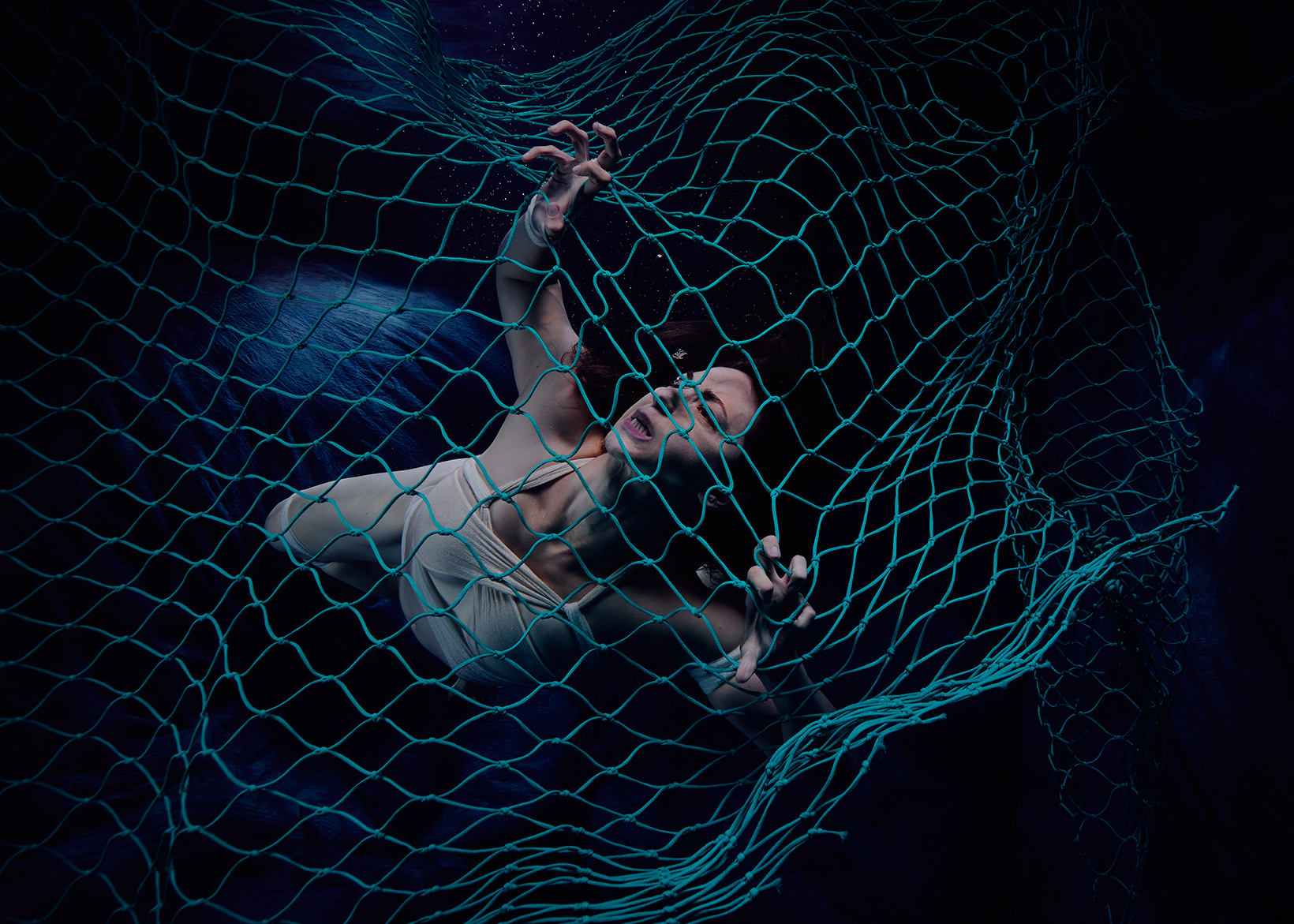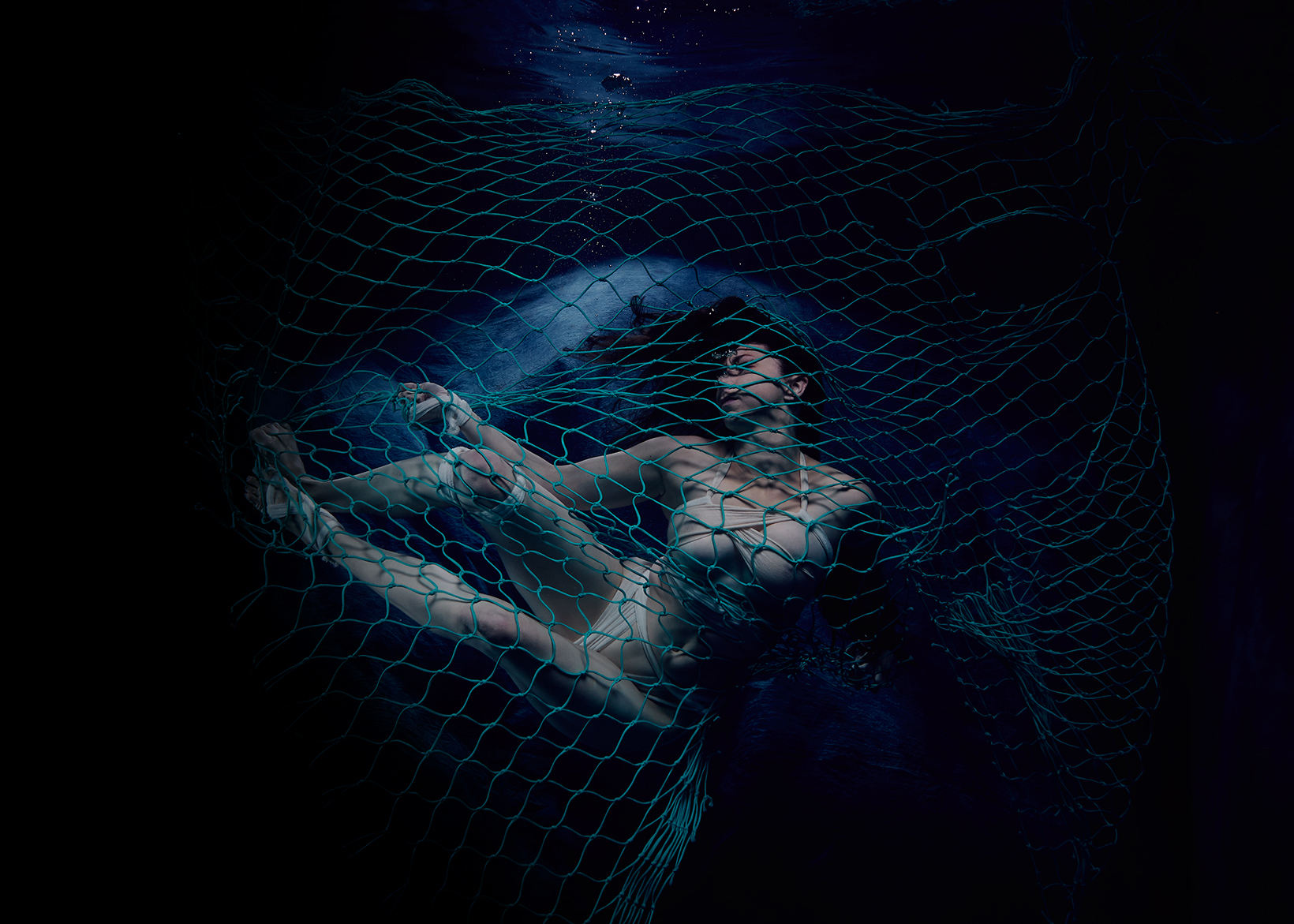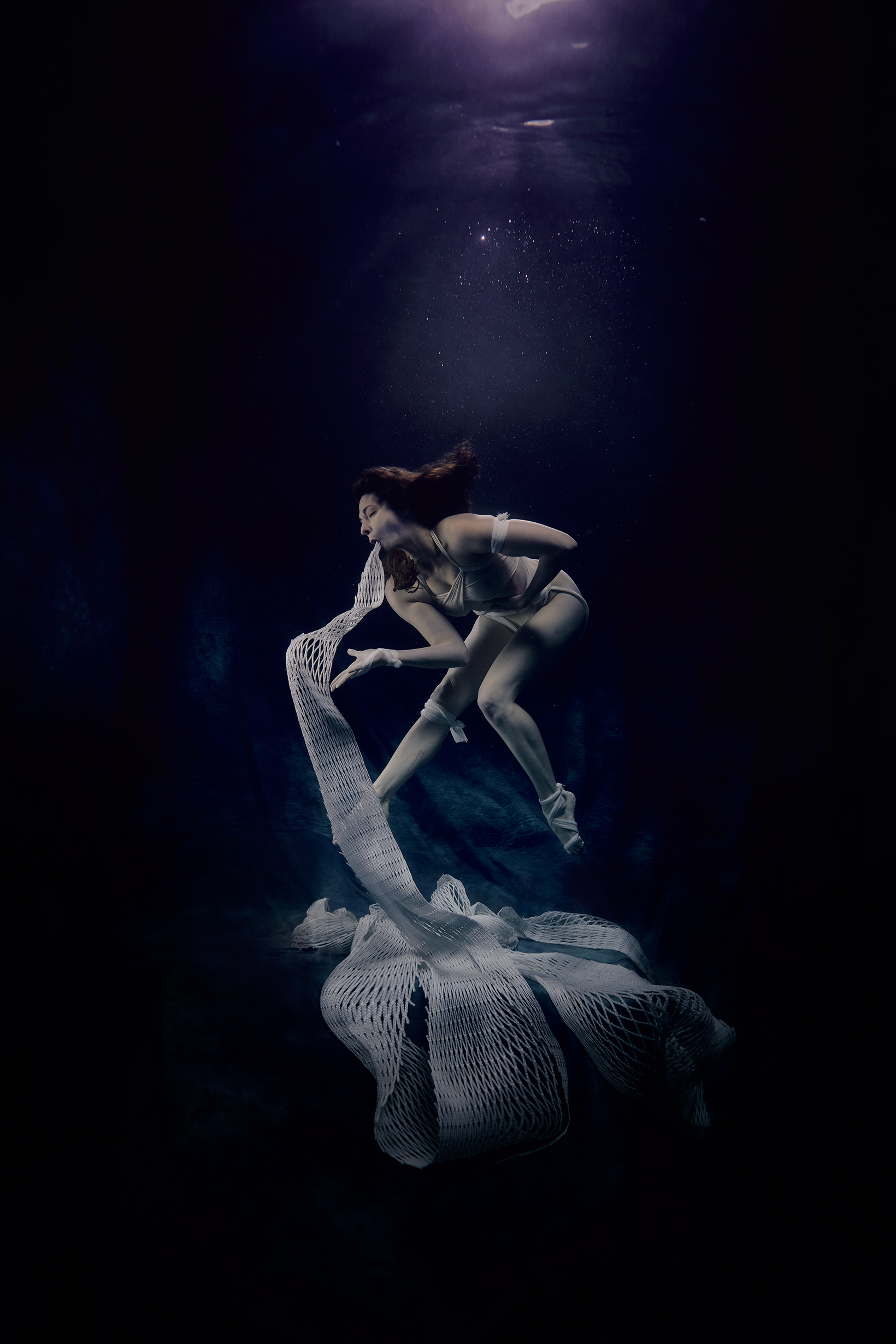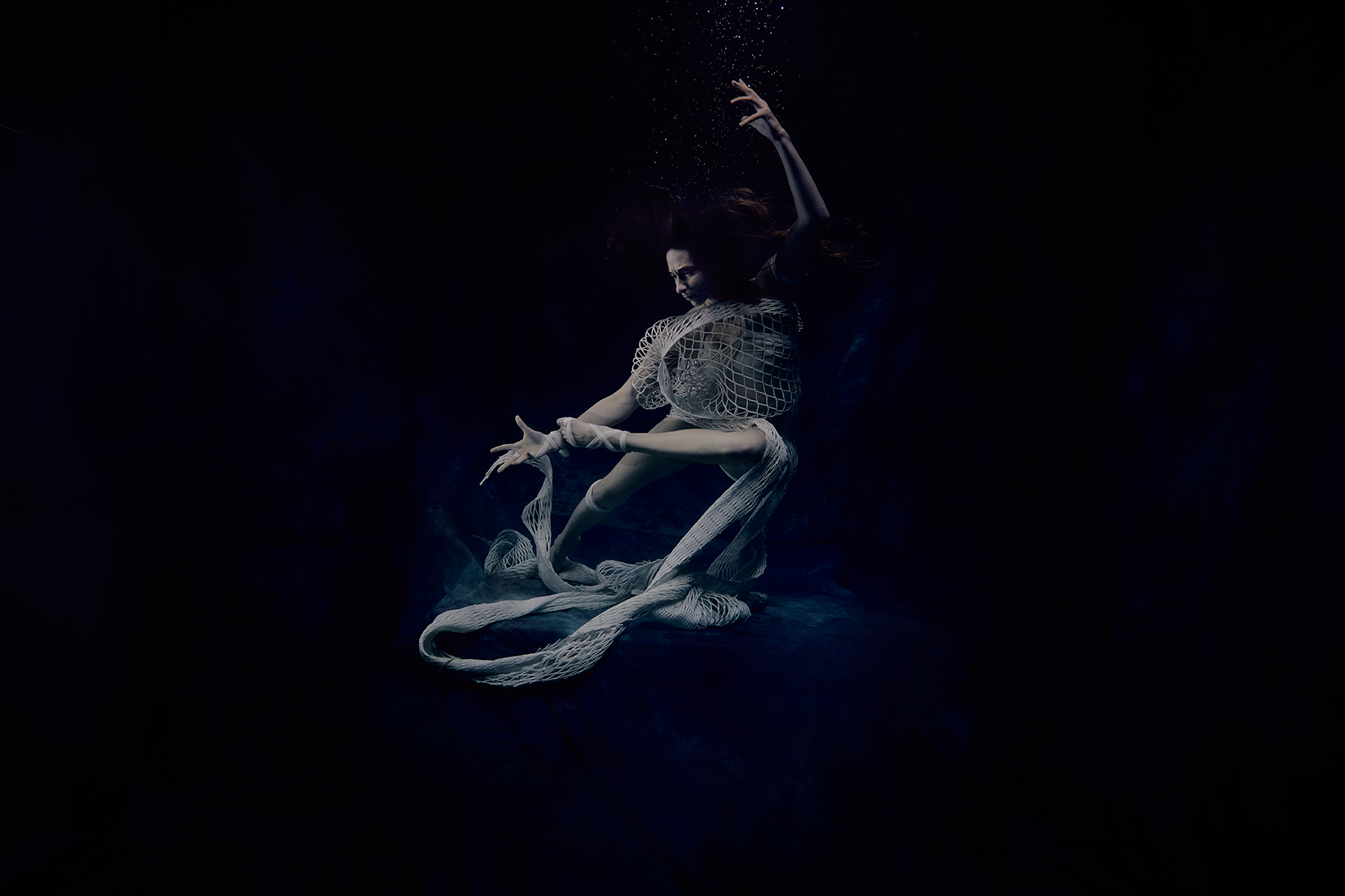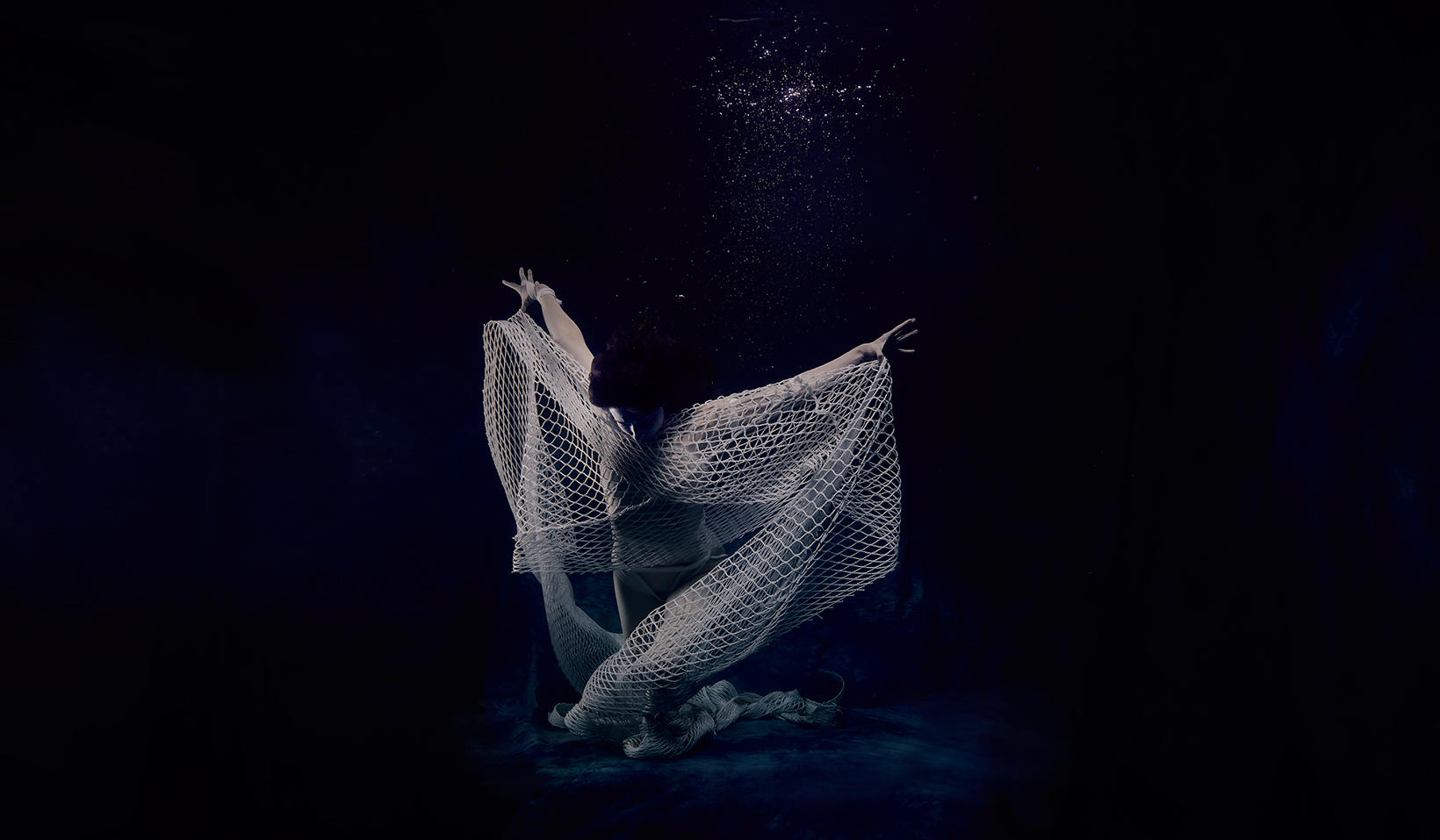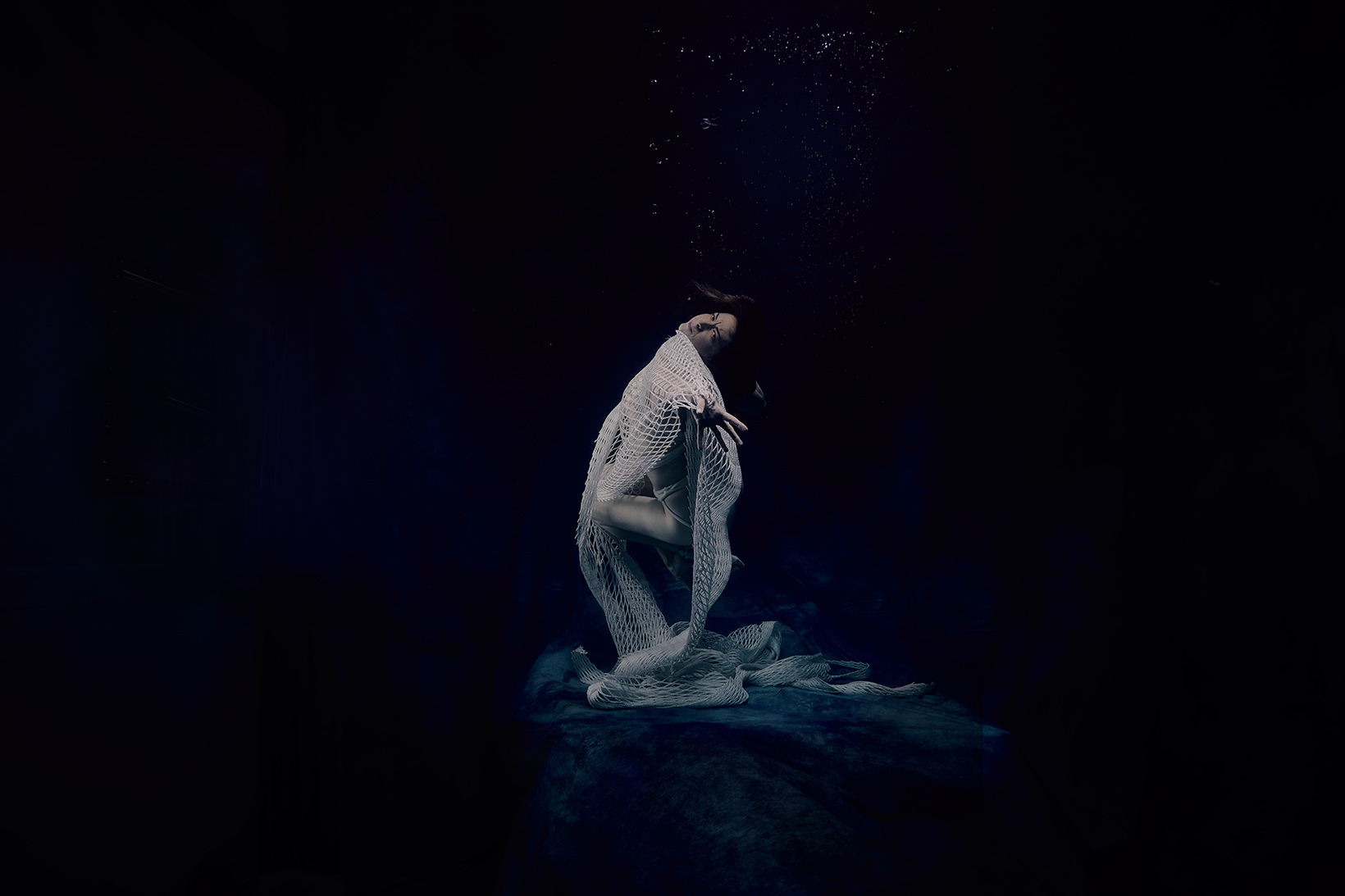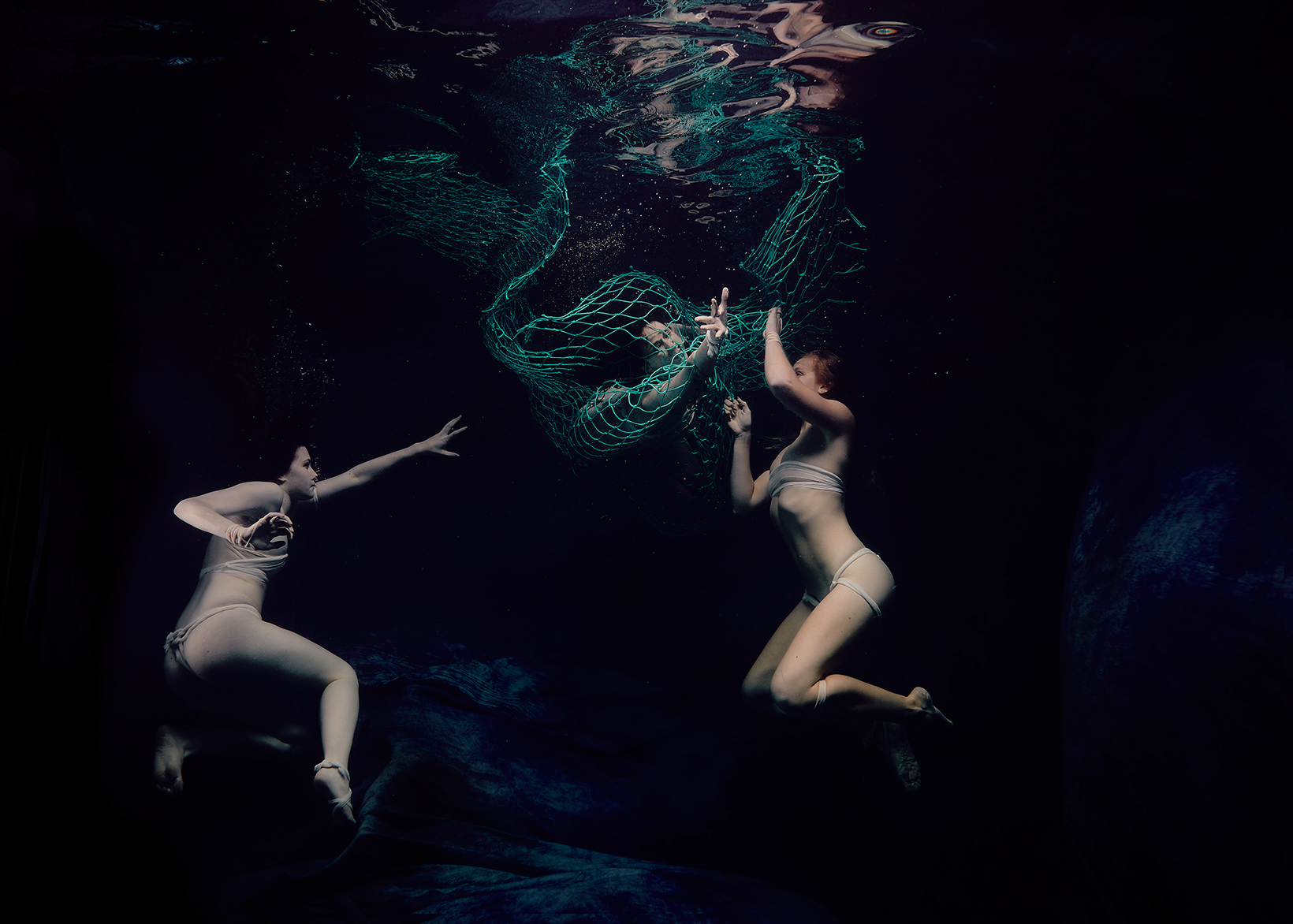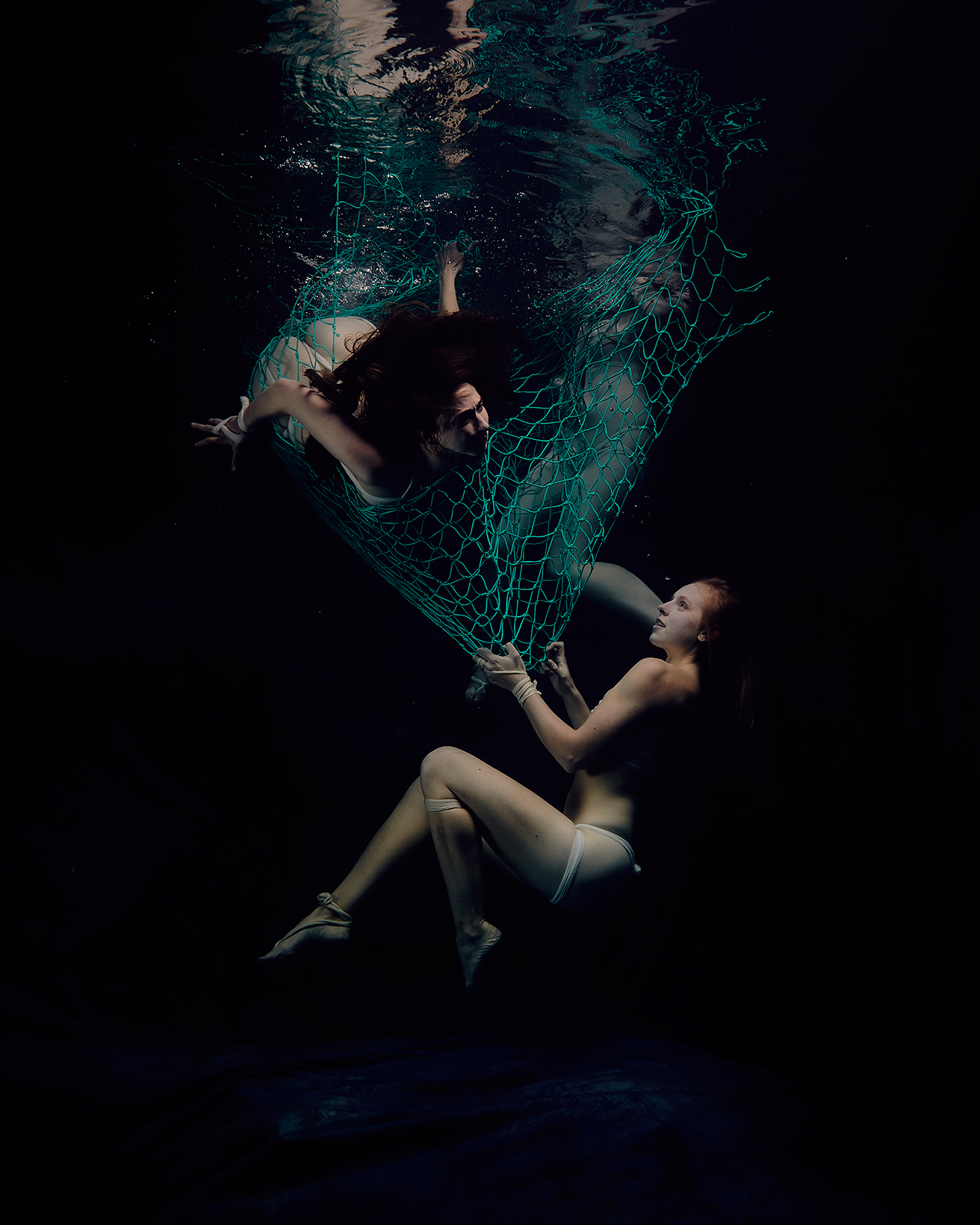Artist Christine Ren is passionate about ocean conservation issues, and uses her unique outlook to shine a light on some of the most pressing. Here she chats with us about her latest project, focusing on ghost nets.
What inspired you to complete this project?
I search for issues that inspire me and that are not getting much attention. The issue of ghost nets fits both those criteria. I look at what marine conservation organizations have done to raise awareness, and then I search for holes. What failed? Why didn’t it work? What has been overdone and is no longer effective? Ghost nets are the ocean’s silent killers. With that in mind the imagery began to connect in my head around what I could convey.
Can you give us a bit of background on the project?
In the video, I start by conveying that a single abandoned fishing net can last for up to 400 years in the ocean. A piece of floating debris like this can tangle and kill marine life, as well as destroy coral reefs. Fishing vessels abandon or lose their nets, lines and other gear, which causes major problems for marine life and ocean ecosystems. This derelict gear continues to fish for centuries in the sea. Centuries!
What was your main goal?
Our aim with this campaign was to showcase ghost nets as the silent killers they are. Most of us have seen sad photos of marine life struggling within a ghost net. But my work in this underwater photography performance realm is to use my body and my movement as a human canvas for these issues. Because I believe, quite simply, that ocean conservation is a human issue.
As such, the idea of this shoot was to use people to highlight the struggle, pain, and resignation that these nets cause in the ocean, whether tangling life or being ingested. We tried to create emotionally evocative and eerie-yet-awe-inspiring underwater photos to bring mass attention to this issue and its solutions.
How did you execute the project?
I partnered with photographer Jose Cano in his newly built underwater photo studio in Nelson, New Zealand. Jose found me through a Kickstarter campaign I was running for the series, which didn’t get fully funded. Just when I thought the series was dead in the water, Jose offered to fly me to New Zealand for a few shoot days. It was a dream.
Did you have any concerns?
This shoot, in particular, was the one I was most nervous about. The idea of being tied and tangled up in nets underwater is incredibly scary. But you must push yourself past your fears sometimes to make things that matter to you happen. For silent killers, we had a team of amazing people all donating their time and effort to bring the concept of to life. Kung, the makeup artist, spent the day expertly creating costumes for myself and the other two models, Emma and Moana, by tying up in bandages from many different drug stores.
In this series, we worked with two different nets — a green net and a white one. We created images featuring a single person struggling in the net and then group shots, where others were attempting to untangle me. And then a final idea where I was vomiting a net, as so many creatures in the ocean eat these nets and die from suffocation that way.
Are you happy with the final product?
Being both art director and performer in these series can be challenging, but the results we created were so magnificent. I couldn’t be happier. And we have a second series launching at the end of July, called the 11th Hour, to raise awareness about climate change.
What can we all do about ghost nets?
As consumers, we can ensure the incentive for economic solutions related to ghost nets. Working well for this issue are net buy-back programs, wherein companies train and pay fisherman to reclaim lost gear. Afterward they recycle nylon waste from ghost nets into new material to create products. They are creating everything from swim wear to skateboards. For this series, I’m asking people to commit to a 30-day challenge to spread the word about businesses that are turning reclaimed ghost nets into sustainable products. I’m highlighting the following solution partners and asking people to share and champion these ocean heroes:
- Global Ghost Gear Initiative
- Healthy Seas
- Bureo
- Volcom — a product made from Econyl
By guest author Christine Ren


